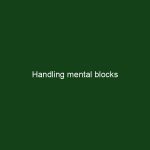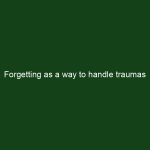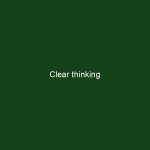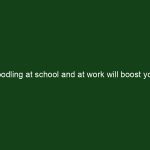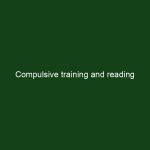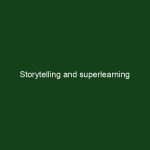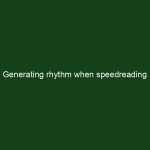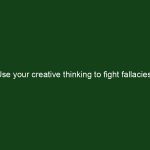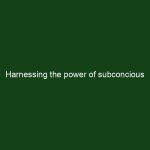Occasionally we try to focus on the task at hand and our mind goes blank. Now, what should we do next? Do not give up! There are some tricks that can help to some extent… Relax. Very often if you simply relax your mind block will evaporate. Try some simple visualization exercises using simple objects, …
Forgetting as a way to handle traumas
Occasionally we ask ourselves: why do we forget at all? What if we could remember things forever? Apparently forgetting things helps us to deal with traumas. One of the best ways to deal with traumatic experience is rewriting the traumatic memory. Some courage is required, so do not attempt this if you do not have …
Clear thinking
How analytical and rational is my thinking? Only one way to find out: get tested! I discovered clear thinking site entirely by mistake, and I was shocked by the quality of personality traits testing. Within very few very accurate questions, computer is able to pinpoint strengths and weaknesses of your thinking. The site loads fairly …
Doodling at school and at work will boost your productivity
Once in a while we write about doodling (or freestyle annotation) and its benefits. Students drawing in their papers where mistreated by generations of teachers. They were asked to focus, to stop fooling around and to listen to the teachers. However, the human spirit is stronger than education fashions, and student persistently doodled in school …
Continue reading “Doodling at school and at work will boost your productivity”
Get better at getting better
The Japanese concept of kaizen includes getting better at getting better as a key ingredient to productivity. Kaizen can be loosely translated as a “good change”. For superlearner the change is a continuous process that optimizes our existence, a cycle of questioning, learning and implementation. In kaizen this cycle includes This kind of continuous improvement …
Compulsive training and reading
Quite often our students focus on HOW they read and not on WHAT they read. This focus may generate overload and reduce both reading speed and reading comprehension. Please try to do all the preparatory work during prereading, do all the performance analysis after reading, and concentrate on reading when you read. One way to …
Storytelling and superlearning
I promised myself to write a post about creating marker-ready stories. Instead I am writing an article on storytelling. Storytelling is a great skill I want to master one day. The skill is important from various perspectives as following: All stories teach compassion and self-compassion. Bad things happen all the time. Each of us has …
Generating rhythm when speedreading
When teaching speedreading we often ask our students to use rhythm. In this post we describe the issue of rhythm in depth. A usual effect of lack of rhythm was summarized by on of our students “First 5 min are easy then getting harder, I slow down and I have to rest”. Usually this means …
Use your creative thinking to fight fallacies.
There is a huge list of logical fallacies one can make. In fact one of our memory exercises focuses on them. The full list is too long to follow… How can we use our knowledge to fight our own fallacies? First of all we need to manage our attention. This is counter-intuitive. We are not …
Continue reading “Use your creative thinking to fight fallacies.”
Harnessing the power of subconcious
One of the best hacks we try to teach in our courses is harnessing the powers of unconscious. Here I outline three examples of doing this. Plus one We have discussed synaesthesia before. We train synaesthesia for making sense in complex environment. Unlike the regular definition of synaesthesia, recently I read a new interpretation: The …

